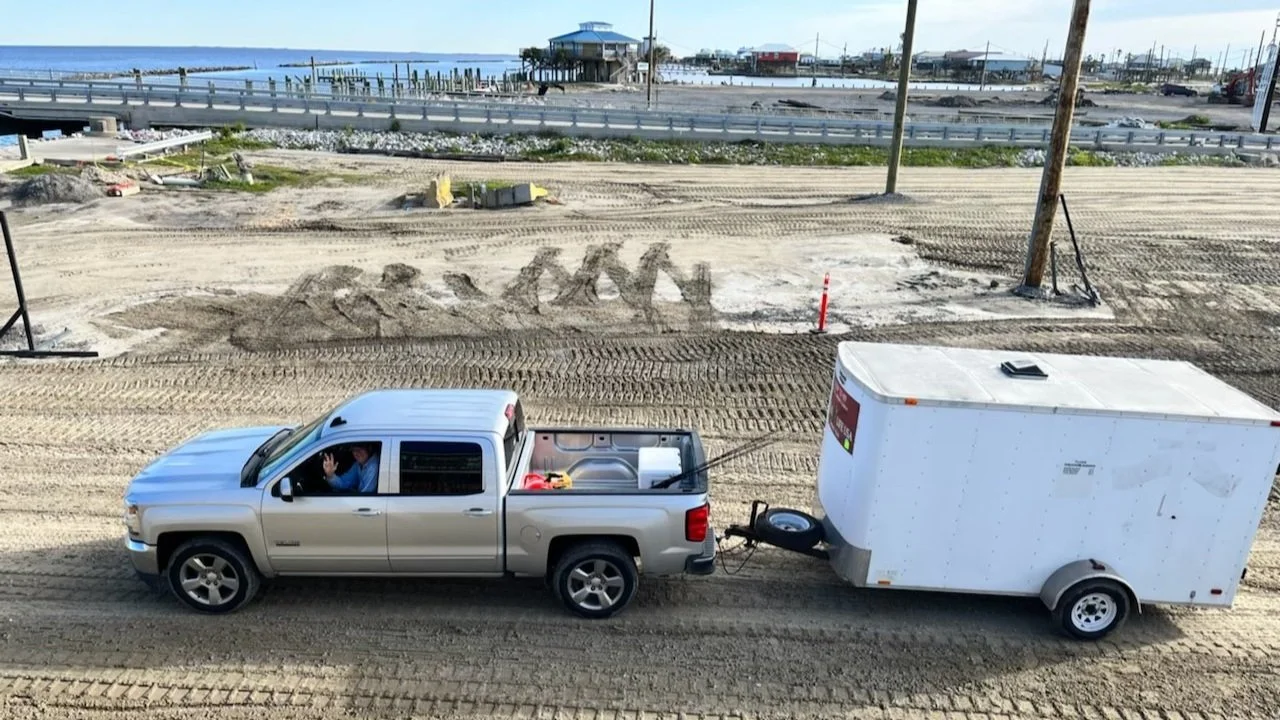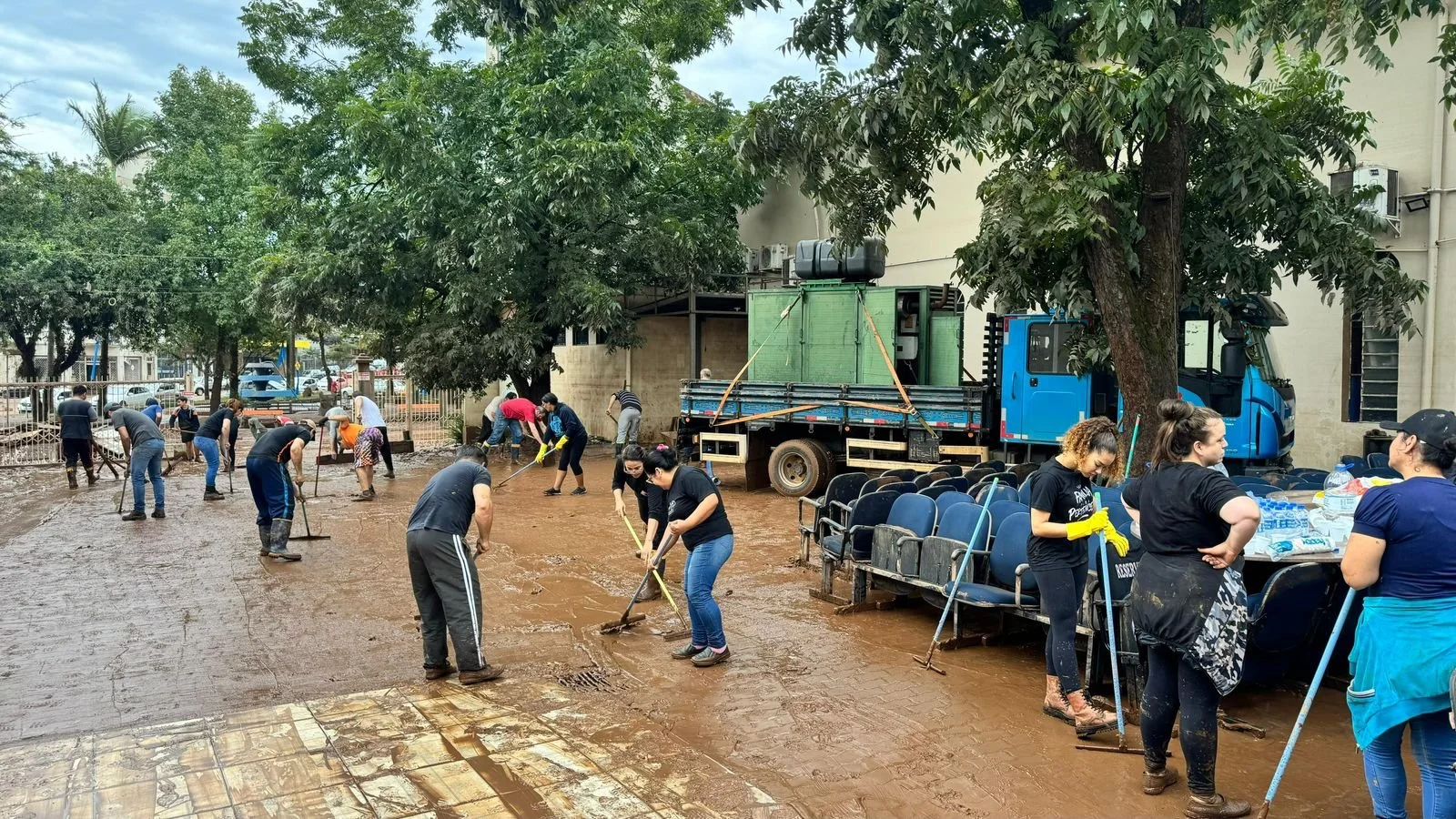ARDF's First Ever Disaster Relief Trip
Volunteers from Anglican churches spent a week rebuilding this fish cleaning station.
“As Christians we do disaster relief because we’ve all been affected by disasters, whether it is local disasters, international disasters. And it is just our opportunity to give back.”
- Scotty Weeks, Trinity Anglican Church, Lafayette, LA
Grande Isle, LA
Each year, dozens of disasters hit communities across North America. Some of these are well documented in the mainstream media, while many others are not. Either way, ARDF has a long track record of responding.
Since 2004, with the help of the ACNA, we have raised nearly $5.5 million to help Anglican churches fund disaster relief efforts.
Unfortunately, disasters are on the rise. The Washington Post reported that nearly one in three Americans experienced a weather related disaster last summer (2021). Because of this trend, we are compelled to expand our reach to help the increased numbers of people in need of disaster relief.
In 2020, ARDF began a pilot program, exploring what it might look like for us to have our own Anglican disaster response network. We began by working with dioceses in Texas and South Carolina, hosting teams, training volunteers and churches, deploying supplies, and mobilizing people across our province.
ARDF’s own Director of Development, Kelli Hample, joined a team of five others in late March on a first ever mission trip focused on disaster relief work. The team went to Grande Isle, Louisiana, where - seven months post Hurricane Ida - the electricity had just been (finally!) reconnected. With power restored, it was then possible for the work of recovery to begin.
The team worked to rebuild a fish cleaning station at the heart of the community. A second team arriving the next week continued the work.
An equally important part of the trip involved a training, held at Trinity Anglican Church in Lafayette, LA. In partnership with the North American Lutheran Church, participants received training on how to be prepared as an individual, a family, and a congregation. There was also a panel discussion about spiritual care.
The three dozen participants who attended each brought their own reasons for their interest in disaster relief work. Some had been recipients of aid from church volunteers in the past.
“We were always taught that you don’t ask for help, that you pull yourself up by your bootstraps. We never had to ask for help. People just came and helped [when our home flooded six years ago]. It is so humbling and I still get tears in my eyes. The support from our church was fantastic, the spiritual support, the prayers. The people coming up and giving us hugs; that is what we needed at that time.” - Gerry Coryell, Holy Cross Anglican Church, Baton Rouge, LA
Some had seen the impact a small church could make when given the opportunity to help.
“Our little church mobilized and in our parish hall for about 12 weeks we cared for sixty residents. We fed them three meals a day; we provided for their hygiene facilities, we provided for security, and we took them across town for their dialysis treatments twice a week. And it was really illustrative of the notion that you don’t have to be a giant bustling man and swing a hammer or pour concrete to be able to contribute.” - Bill Cober, Trinity Anglican Church, Lafayette, LA
And others just see it as an extension of their Christian walk.
“We’re the hands and feet of Jesus and we need to serve the people.” – Stephen Haynsworth, St. John’s Parish Church, Johns Island, SC.
During break out sessions, participants had the opportunity to dream about what a national Anglican disaster relief effort might look like. How can we coordinate the collection and distribution of relief supplies? How can we provide training to Anglican churches, so that in times of crisis they are prepared? Since one organization will never meet all of the needs post disaster, how can we develop partnerships to better serve communities affected by disasters?
As we process all of these discussions, we will be launching this new initiative to expand the pilot and to bring a coordinated disaster response to other areas of the United States. Please join us in praying for these efforts. And if you are interested in learning more, let us know.










